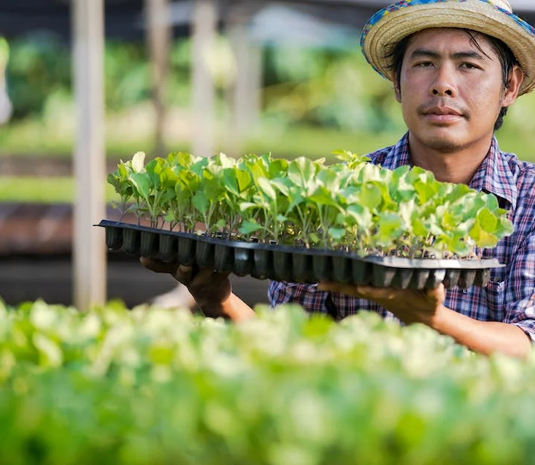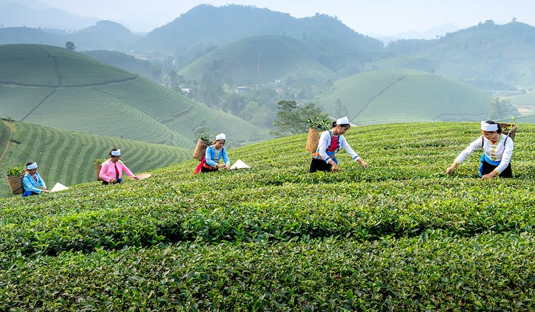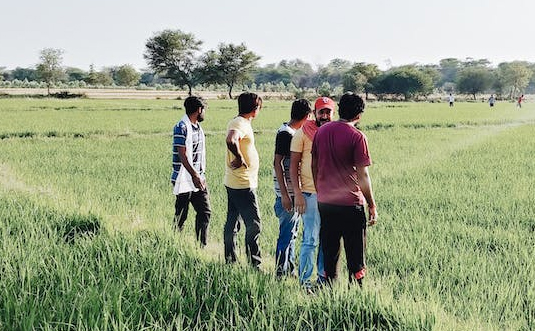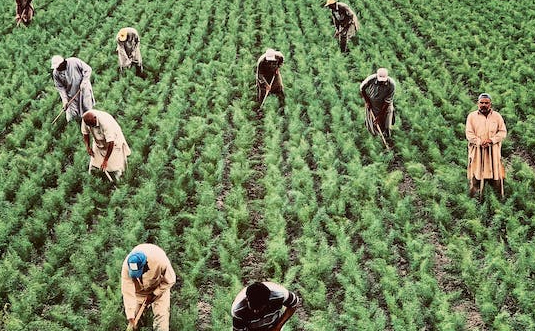A quality assurance initiative that is locally relevant, emphasize the participation of stakeholders, including producers and consumers and operate outside the frame of third-party certification.
A participatory approach, shared vision, transparency, and trust are the basic element of PGS -India.
To ensure entry of individual farm producers and PGS-India certified organic farm produce into organized processing and retail sales, PGS-India provides a system of continued verification of organic integrity for farms (Individual & Group), on-farm and off-farm processing and handling.
AGSUN BIOSEEDS INDIAis one the Regional Council approved by National Executive Committee (PGS -NEC) for offering PGS – India certification services as per revised guidelines across all the 29 states and Union Territories.

PGS-India provides specific provisions to certify these farms through verification and guarantee from nearby PGS-India groups as per the guiding principles of PGS-India for groups. In exceptional cases where there is no PGS-India group nearby for such guarantee then national institutional structure through Regional Councils can assist such farmers for verification of their compliance to PGS-India guarantee process. But such farmers should make all out efforts to create groups and become part of PGS-India groups as and when possible. Individual farmers in villages where PGS-India groups are existing or are in close-by villages of such PGS-India groups, they shall be treated as part of those groups.
Individual producer registration is an interim arrangement and the producer must initiate efforts to bring in other members from the village community to form the group in due course (maximum 2 years) and transform individual status to group status. In case if an individual farmer is unable to form a group even after 2 years, then Regional Council will attach the farmers with the nearest group.
Minimum of 5 farmers can form a group and apply for certification abiding by the as per the general guiding principles of PGS-India involving peer appraisal and decision making by group.


On-farm processing and handling by the PGS local group shall form integral part of PGS-India groups and shall be covered as per the general guiding principles of PGS-India involving peer appraisal and decision making by group.
Off-farm processing and handling in stand-alone facilities away from PGS-groups can also be certified by adopting “Conformity assessment and verification” criteria similar to third party certification systems and individual units will be approved for PGS-India organic processing and handling.
Four group meetings, at least two in each season. One training, any time during the year. First training within 6 months of registration. Peer appraisal to be done during crop growth period starting from 15 days of sowing till 15 days before harvest. Uploading of peer appraisal summary sheet till 7 days before harvest date. Uploading of actual yields within 60 days of harvest. If no TCs are issued and stock remains unsold the PGS-India website will delete the stock in auto mode after 12 months from the date of harvest.


Application form of each member with last one year’s farm history ii. Copy of PGS-India pledge of each member iii. Copy of agreement with RC iv. Copy of individual peer appraisal sheets for last four seasons (24 months) till the physical inspection by RC v. Attendance and proceeding register for group meetings vi. Attendance registers for trainings vii. Copy of peer appraisal summary sheet (season-wise as submitted to RC)
PGS is a process of certifying organic products, which ensures that their production takes. place in accordance with laid-down quality standards. The certification is in the form of a. documented logo or a statement. PGS replaces expensive third party audits, making organic farming certification possible for the small scale and marginal farmers that make up nearly 70% of India's agricultural sector
Formation of “Local Group-LG” of five or more organic farmers, ‘’Peer reviews” and “farmer’s pledge’’ to follow organic standards are unique features of this system. The peer review team can engage traders, civic leaders and local consumers to build social relationships and social control on farming practices. The PGSOC secretariat meets periodically to review the function of groups, updated data, issue certificates and engages in liaisoning with state.
In a major development, the Govt of India has launched the PGS India through the Department of Agriculture and Cooperation (DAC), the Govt of India had issued a notification dated the 7th of April, 2011 which explains the background and process of PGS India certification. It shall function under a National Advisory Committee. The National Centre of Organic Farming, with its Secretariat at Ghaziabad, will set organic standards, guidelines and involve in capacity building programmes.
The FSSAI recognises and allows PGS India organic certified products in the market. PGS-India web portal was launched in 2015. PGS-India has since then evolved with the introduction of online registration, approval, documentation, and certification and transaction certificate for sales.
PGS-India certified products can be labeled with PGS-India logo along with unique ID code provided on the certificate. Use of PGS India Organic logo
1) Individual farm Certificationa
2) Local Group Certification
3) Processing unit Certification
4) Livestock Certification
(Transaction Certificate available)